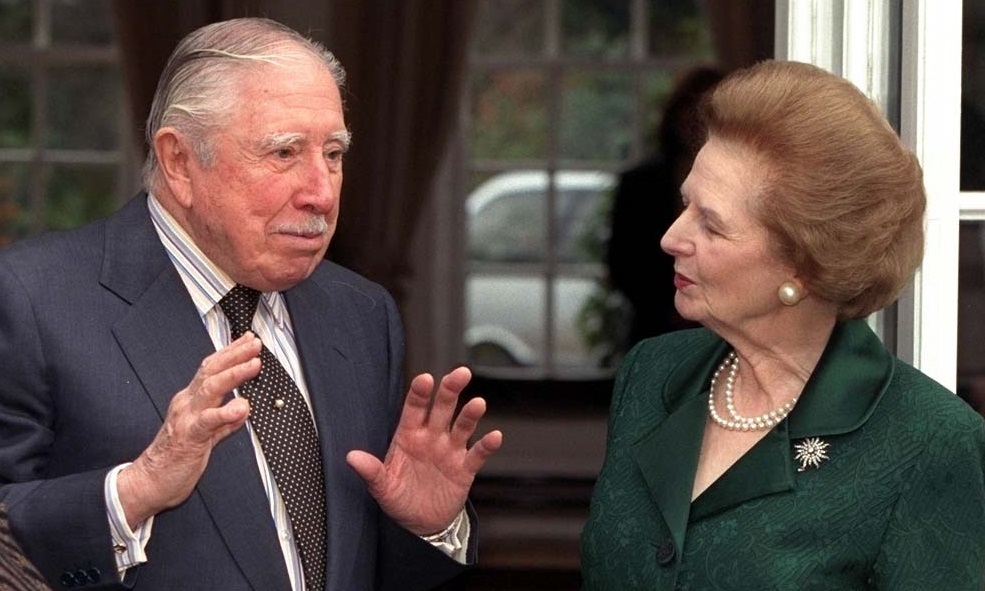September 11 has been somewhat eclipsed in the last decade by a more notorious anniversary, but it remains a date etched in Chileans’ minds for different reasons.
As world leaders wrestle with what to do with refugees fleeing war-town Syria, it’s a reminder that Scotland has a long history of welcoming those in need.
From thousands of Polish soldiers displaced by Nazism then Communism after the Second World War, to Vietnamese boat people seeking asylum during the late 1970s, Fife and Tayside have taken their share of refugees over the years.
But it is events which happened 42 years ago today in South America which brought horrific stories of a whole new set of atrocities to the streets of Dundee and Fife.
On September 11 1973, General Augusto Pinochet staged a military coup which ousted the elected Marxist government in Chile and installed a junta.
After Pinochet seized power, there followed 17 years of persecution, torture and disappearances.
Thousands of trade unionists, socialist and communists were incarcerated. The most famous of these torture centres was in the Santiago football stadium where some 40,000 people were held. Many who were tortured there never came out alive.
An estimated one million Chileans fled the country.
Political activists, artists, musicians and intellectuals, and their families, initially crossed into neighbouring Peru and Argentina.
Thousands headed on to Europe, settling in countries ranging from Sweden and Spain to East Germany and Scotland. In total about 3000 ended up living in Britain, including 500 in Scotland.
Among them were ordinary working people, including a group sponsored by the mining community in Cowdenbeath, as well as other groups dispersed around the UK.
Amongst 30 Chilean families who settled in Dundee was Mario Uribe. A photographer working for a news magazine in the capital Santiago during the early 1970s, he suffered arrest and detention before being forced to leave in 1976.
The family arrived in Dundee with virtually nothing. They were allocated a home in Whitfield and found to their surprise that people who did not even know where Chile was were willing to help them.
Mario has since passed away. But in 1990 he told The Courier: “When we moved in we did not even have chairs or a table, but total strangers gave us so much help. I am very grateful to the city of Dundee and its people.”
Another Chilean exile who settled in Dundee’s Perth Road was Mrs Lilly Van Der Schrast. On the morning of the 1973 takeover by the Chilean military, Lilly and her husband were preparing to leave their home near the presidential palace for another day’s work at Santiago University.
“It was dreadful, chaotic,”she told The Courier in 1988. Lilly was trapped inside her home for three days but was later thankful she didn’t make it into work that morning as many who did were killed or disappeared into concentration camps.
In the Cowdenbeath and Lochgelly areas, the locals were also quick to open their doors to the exiles from South America.
In 1975 The Courier reported how three families had settled in Lochgelly with the support of the Chilean Solidarity Committee, National Union of Mineworkers, the National Coal Board and Lochgelly Town Council.
Carlos Arredondo was one of the first Chilean refugees to arrive in Scotland in October 1974. He settled in Glasgow where he still lives today. He has worked to research, document and write a history of the Chilean refugees in Scotland.
He said: “The experience of exile was sad and very hard.
“One of the main problems for any refugee was to learn a new language. In our case, we had to learn English and try to live and integrate in a society that was very different from ours. When we arrived we were full of uncertainties and worries. Families had to see the welfare of their children, medical care and many other issues. I could see the disintegrations of several families among the exile community.
“On top, we had to worry about those left behind. Our families, our friends, our comrades all submerged in a bloody dictatorship. Some Chileans came to Scotland direct from prisons.
“Most of us, however, who came to live in Scotland were well received by Scotland.”
Jim Barlow, a member of the Unite trade union and the Socialist Workers Party in Dundee, was part of the Chilean Solidarity Campaign.
The group appealed to Dundee City’s Labour Council at the time to assist with housing for Chilean refugees.
Jim told The Courier: “To their credit they agreed to give council housing assistance to around 30 families during the late seventies.
“I remember well that these families were welcomed here with open arms and given much support by the labour and trade union movement of Dundee. Practically all these families eventually returned to Chile in the years after democracy was restored.
“I believe we should show the same level of humanity with political and economic support to families fleeing wars from across the Mediterranean.”
Pinochet, who claimed he was saving Chile from communism, was a controversial ally of then British Prime Minister Margaret Thatcher. He died in 2006, but his legacy endures.
